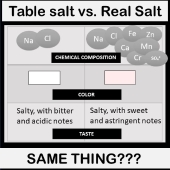from the Neuorexia blog
http://neurorexia.wordpress.com/
and the paper link
http://www.ncbi.nlm.nih.gov/pubmed/23382250
Antidepressant epigenetic action of a common fitness supplement
A short note on the history of antidepressant research: From MAOIs/SSRIs to ketamine and BDNF
Traditional antidepressants, like Prozac, don’t work too well. Back in the 50s, researchers thought that depression was caused by a depletion of a group of neurotransmitters in the brain known chemically as the monoamines (i.e. serotonin, noradrenaline, dopamine). Hence, the reasoning goes, upping monoamine levels should treat depression. Unfortunately, even first-line drugs (such as Prozac) are effective for only ~40% of Major Depression cases. They also have a delayed onset time of weeks to months, and are accompanied by a slew of nasty side effects. In 2006, the field of antidepressant research was shocked by the discovery that ketamine – a dissociative club drug – has fast-acting antidepressant & anti-suicidal affects lasting longer than the duration of the drug. Ketamine works on the glutamate system, which is the main excitatory neurotransmitter in the brain, and results in a rapid increase of a protein called Brain-Derived Neurotropic Factor (BDNF). BDNF increases the formation of new synapses and reverses neuronal abnormalities in the prefrontal cortex. On the circuit levels, this leads to functional “rewiring” or “resetting” of connection between neurons, which may underlie rapid behavioral changes seen with ketamine administration. This discovery led to the “synaptogenic” hypothesis, which stipulates depression is not due to lack of monoamine neurotransmitters per se, but the inability to maintain normal synapse formation. It seems like the antidepression field is going through a paradigm shift, placing BDNF and the glutamatergic system front and central as targets for new generation antidepressant targets. Exciting times!
Screen Shot 2013-04-02 at 4.36.39 PM
Depression literally wilts your brain. In patients suffering from major depressive disorder (MDD) and rats undergoing chronic stress, their neurons are fewer, smaller, and host shrunken dendrites with malfunctioning synaptic connections. MDD patients also generate fewer new neurons, effectively cutting off the supply chain. All these morphological and functional changes lead to disrupted neuronal communication in the cognitive-emotional circuitry, leading to depressive symptoms. Tranditional antidepressants, like Prozac, can block or reverse these deficits – but only in ~40% MDD patients. They also require weeks to months to work, and often come with intolerable side effects. Not good!
In search for fast-acting antidepressants, researchers stumbled upon ketamine, the notorious dissociative club drug, which amazingly reverses depressive symptoms only hours after administration. Ketamine’s magic lies in its ability to act on the excitatory glutamate neurotransmitter system, causing an increase in the “nurturing” protein Brain-Derived Neurotropic Factor (BDNF), which leads to formation of new synapses. Unfortunately, although valuable, ketamine’s psychoactive effects and addictive potential lowers its potential as an antidepressant pill.
So the search continues…
Is this the answer?
Is this the answer? Soooo many brands available OTC.
…And somehow, researchers find a fitness supplement.
Nasca et al. 2013. L-acetylcarnitine causes rapid antidepressant effects through the epigenetic induction of mGlu2 receptors.PNAS 110 (12):4804–4809.
L-acetyl carnitine (LAC) is an amino acid derivative involved in energy metabolism and fatty acid oxidization, and is frequently sold as an energy-enhancing fat-loss supplement in fitness stores. Clinically, it is used to treat pain by acting on the epigenome – changing the expression of certain genes. Namely, LAC increases the expression of a glutamate receptor, mGlu2. Since mGlu2 is lowered in a genetically depressed line of rats (named FSL), the authors hypothesized that LAC may have anti-depressive effects through an epigenetic mechanism.
To test this, the authors got ahold of two strains of rats: the spontaneously depressive FSL, and the depression-resilient FRL. They also pitted LAC against a traditional SSRI antidepressant, chlorimipramine (CLO). Now, how do you tell is a rat is depressed? Here, the authors used two main tests, the forced swim test, and the sucrose preference test. The former measures how much a rat is willing to fight for its life (depressed rats give up faster) while the later measures whether a rat takes pleasure in sweet tasting food (depressed rats show lower desire for sugar). FSL rats treated daily with LAC showed improved symptoms after only 3 days of treatment, while CLO took 14 days to see such an effect. LAC-treated rats also showed increased levels of BDNF, which as mentioned before, is crucial for the generation of new synaptic connections.
Forced swim test: depressed rats are less willing to swim.
Forced swim test: depressed rats are less willing to swim.
When researchers stopped giving the drugs (look at “days of withdrawal”), depressive symptoms rapidly came back in the CLO-treated group, but the effect of LAC persisted for at least 2 weeks after the treatment stopped. Unsurprisingly, none of the drugs affected the depression-resilient FRL rats. The authors further verified LAC’s antidepressant effects with a mice model of chronic stress exposure, which is thought to be a primary environmental cause of depression in humans.
Now we have a “black box”: in goes LAC, out comes happier rat. What’s happening inside the box? Well, the effect of LAC was abolished when coadministered with a mGlu2/3 blocker, suggesting that LAC is acting through mGlu2/3 to exert its effect. As mentioned before, mGlu2 levels in the hippocampus and prefrontal cortex are lower in the depression-prone FSL rats; LAC treatment increased both mGlu2 mRNA and protein levels to that of the FRL controls. Further analysis with pharmacological inhibitors showed that a transcription factor called NF-kappaB is involved in the upregulation of mGlu2 induced by LAC. A transcription factor acts as a “messenger”, mediating interactions between the environment and gene expression by directly binding to promotors on certain genes. Finally, LAC also changed the conformation of the histone proteins that the mGluR & BDNF gene is wrapped around, leading to a more “open” conformation that allows easier access to transcription factors to enhance gene expression. Essentially, all of the above shows that LAC can increase expression of mGlu2 and BDNF through an epigenetic mechanism, and (maybe) lead to formation of new synapses down the road.
Acetylcarnitine (the “AC” part of “LAC”) is produced naturally in the body, and can be acquired through diet by eating meat and diary (vegetarians are often deficient). Interestingly, the authors found that endogenous LAC levels were reduced by 40-60%in the prefrontal cortex and hippocampus of FSL rat, which may be one of the reasons they respond to LAC treatment. The authors didn’t further pursue this point – does low endogenous LAC predispose a person to depression? Is supplementing LAC “rectifying” this deficiency? LAC is heavily involved in fat metabolism – can a metabolic shift also promote an antidepressant effect?
Overall, this study identifies LAC as a potential fast-acting antidepressant with notably fewer side effects than existing options. While I’m not very convinced its action is mainly through epigenetic regulation of BDNF, it does support the idea of targeting epigenetic mechanism to develop new generation antidepressants (on the other hand, epigenetics is so hot these days EVERYONE wants a bite of it). For me, this study nicely illustrates the intricate interaction between foodstuff and cellular signaling beyond metabolism (see “The complicated science of a simple pleasure”).
I wonder if LAC will now be promoted as “fat metabolizer, nootropic and antidepressant all in one”.
ResearchBlogging.org
Nasca C, Xenos D, Barone Y, Caruso A, Scaccianoce S, Matrisciano F, Battaglia G, Mathé AA, Pittaluga A, Lionetto L, Simmaco M, & Nicoletti F (2013). L-acetylcarnitine causes rapid antidepressant effects through the epigenetic induction of mGlu2 receptors. Proceedings of the National Academy of Sciences of the United States of America, 110 (12), 4804-9 PMID: 23382250
Posted on 04/02/2013 by Shelly Fan. This entry was posted in Research and tagged antidepressant, depression, epigenetics, neuroscience. Bookmark the permalink.
Post navigation
← Brain, livin’ on ketones – a molecular neuroscience look at the ketogenic diet

 1
1

























































 I also thought of another herb to consider other than St. John's Wort or Kava Kava - and that is Mimosa (Albizzia julibrissen) which has heart action, but is a specific for depression. It could be a good match for your situation. If other heart-type herbs are desired, I would also look into Hawthorne (heart food) and Motherwort (can be strong for some people but if it is a good match, it is great).
I also thought of another herb to consider other than St. John's Wort or Kava Kava - and that is Mimosa (Albizzia julibrissen) which has heart action, but is a specific for depression. It could be a good match for your situation. If other heart-type herbs are desired, I would also look into Hawthorne (heart food) and Motherwort (can be strong for some people but if it is a good match, it is great).








 1
1












 1
1








